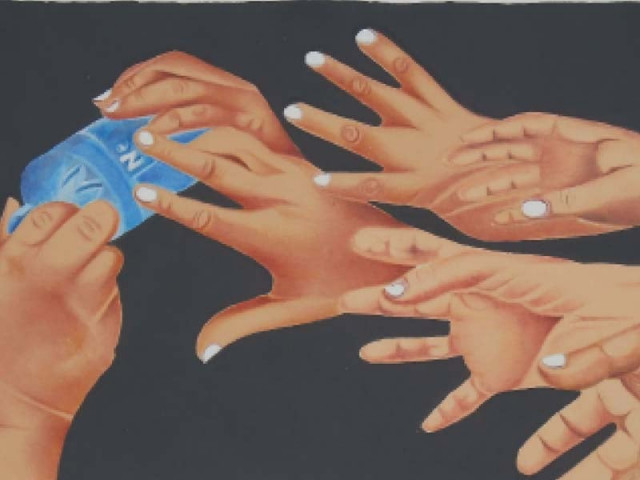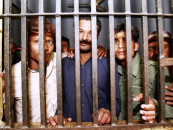‘Structural Intricacies’ : Group show portrays an array of illustrations
Each painting provides an extensive narrative portraying the upheaval impacting the young artists

The artists create an array of illustrations of emotional turmoil. PHOTOS: EXPRESS
It is a collection of contemporary miniature paintings brought together by four emerging artists – Artists Fariha Rashid, Shamsuddin Tanwri, Waheed Bhutto, and Surhan Nizamani – over a span of six months.
Rashid, a Lahore-based visual artist, said her work was based on the subject ‘self.’ “Anger, aggression and love are the feelings that I express through my work. It is a cathartic process for me,” she said.
The composition of her artwork was not chaotic visually, the visual artist said.
“I portray calm imagery because that is what I want to feel, to get rid of all the anger and hatred building up inside me. The symbols I use in my work reveal a part of my personal narrative,” she said.
Tanwri, a Lahore-based miniature artist, said he takes inspiration from the experience of living in two diverse worlds.

“One is my village Shikarpur and the other being Lahore where I am setting up my life. The conflict and difference between these two worlds and how they affect, suffocate and alienate me. This is what forms the basis of my visual and artistic practice,” he said.
A viewer may recognise elements of growth and expansion in his work juxtaposed with images of blackness with polyethene bags on them signifying suffocation.
“In some way, my work is a reflection of the alienation and struggle that I face as an individual. My work is about my observation and about my village life. I explore a person’s body by its negative and positive forms,” he said.
Contemporary miniature artist Waheed Bhutto’s work explores the idea of ‘imposing.’
“I have observed that decisions are usually forced on people rather than being discussed where I hail from,” he said. Those decisions affected women and youngsters the most, the miniature artist said.
“My work largely focuses on honour killings, and coerced and child marriages as I aspire to bring these issues into the public eye through my work,” Bhutto said.
Nizamani, an artist from rural Sindh, draws inspiration from nature. His work depicts values of the community by portraying economic, religious and social issues that are seen and felt on a daily basis.
Curator Zara Sajid said the paintings were an artistic expression of how the patriarchal society shapes its inhabitants.
“Throughout the process, together, we explored and deconstructed themes that are prevalent but usually ignored at large,” she said.
Published in The Express Tribune, August 26th, 2016.



















COMMENTS
Comments are moderated and generally will be posted if they are on-topic and not abusive.
For more information, please see our Comments FAQ